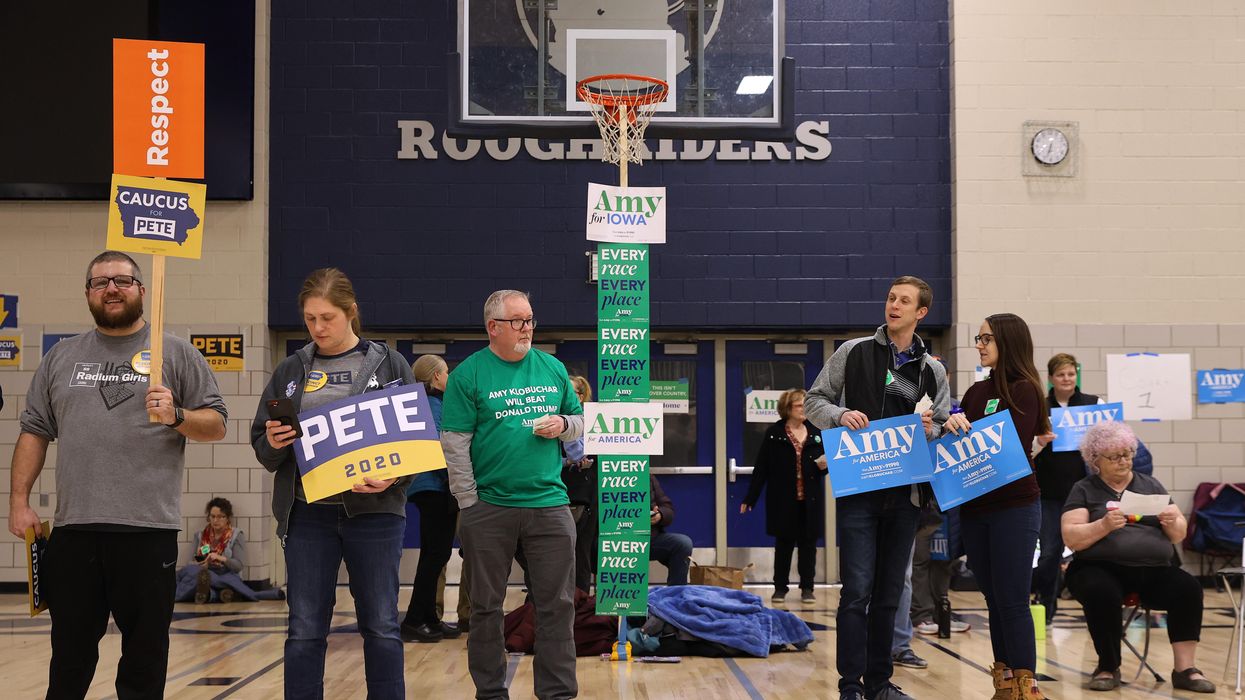Jewitt is an associate professor of political science at Virginia Tech. Shufeldt is an associate professor of political science at the University of Indianapolis and a public voices fellow with The OpEd Project.
President Joe Biden has asked the Democratic National Committee to alter the presidential nomination calendar drastically for 2024. Notably, his proposal would remove Iowa from its coveted lead-off position by replacing the caucuses with the South Carolina primary, which would move up a few spots. Georgia and Michigan would be new additions to this early period. In addition to South Carolina, both New Hampshire and Nevada would retain their privileged early positions in the calendar, providing enhanced influence in the selection of the nominee.
The Democratic National Committee’s Rules and Bylaws Committee recently approved this proposal. As the full Democratic National Committee considers this proposal in February, it is important to consider the consequences of the proposal that makes it more complicated for voters and limits opportunities for meaningful participation.
We see two clear virtues in Biden’s proposal. The first is that the Democratic Party continues to move away from caucuses, particularly following Iowa’s difficulties in 2020. In 2016, 14 states held Democratic caucuses. In 2020, just three states utilized caucuses; the rest opted for primaries. Caucus participants need to be present at a specific time – so moving toward more primaries will give more voters a chance to participate. The gap in turnout between primary and caucus states is only likely to widen as states that utilize primaries can take advantage of vote-by-mail, early voting and other ideas that make voting easier.
Sign up for The Fulcrum newsletter
The second virtue is Biden’s desire to “ensure that voters of color have a voice in choosing our nominee much earlier in the process.” Voters of color make up 40 percent of the Democratic Party’s supporters, but their influence has been diluted as Iowa and New Hampshire, the states that have held the first two calendar positions since 1972, are overwhelmingly white.
With its more diverse electorate, South Carolina’s primary catapulted Biden to the 2020 nomination after he underperformed in the initial states. Some see this calendar shift as a political reward for the Palmetto State, as there are other states that have large African-American populations and could also be future battlegrounds (e.g. Georgia, North Carolina, Virginia).
Promoting more participatory small-d democratic processes and elevating the voices of historically disenfranchised voters are both worthy goals. Yet, this might all be a moot point in 2024, as it appears that Biden will run for re-election and face minimal opposition to the nomination.
Whether this proposal bears out in 2024 or 2028, we believe it presents several areas for concern. Our first concern is Biden’s proposal to review the calendar every four years. In theory, this ensures no single state has an outsized influence and allows the Democratic Party to alter the calendar strategically to maximize its electoral fortunes. But frequently changing the process will only make it more confusing for voters who already struggle with the byzantine process.
A second related challenge is that this proposal would mean the start of the Republican and Democratic calendars will look quite different. Republicans have indicated that Iowa will remain first followed by New Hampshire, Nevada and South Carolina. Following the tumultuous 1968 Democratic National Convention, the Democratic Party rapidly changed its nominating procedures, due in large part to the national party strength and its dominance of state legislatures. With currently heightened partisan polarization and fewer state legislatures controlled by Democrats, the party can no longer expect to choose its preferred process and have the Republican Party conform. Instead, we will likely separate party processes that continually diverge. Independent voters will have to decide earlier which contest they want to participate in – limiting their choice. Confused voters will have to navigate two Election Days, deciphering when it is their turn to vote. Finally, in states where the government covers the cost, there will be important financial implications.
Finally, moving larger states earlier, and removing or diluting the influence of smaller states, will impact which candidates are successful. Without small states at the outset, lesser known candidates are unlikely to have the financial backing or the time to build the necessary momentum to stay in the race. Thus, the candidate pool will dwindle before most voters get to vote, limiting meaningful participation.
If the Democratic Party is prioritizing inclusiveness and participation, it needs to coordinate with the Republican Party. Changing the calendar every four years and moving forward as if the Republican Party is not also a key player in the presidential nomination process will create greater confusion. By simplifying the process and ensuring that both the Democratic and Republican primaries are held on the same date in each state, the parties can maximize participation in the process, which in turn will serve to select nominees who reflect the voters’ priorities and ideals.
